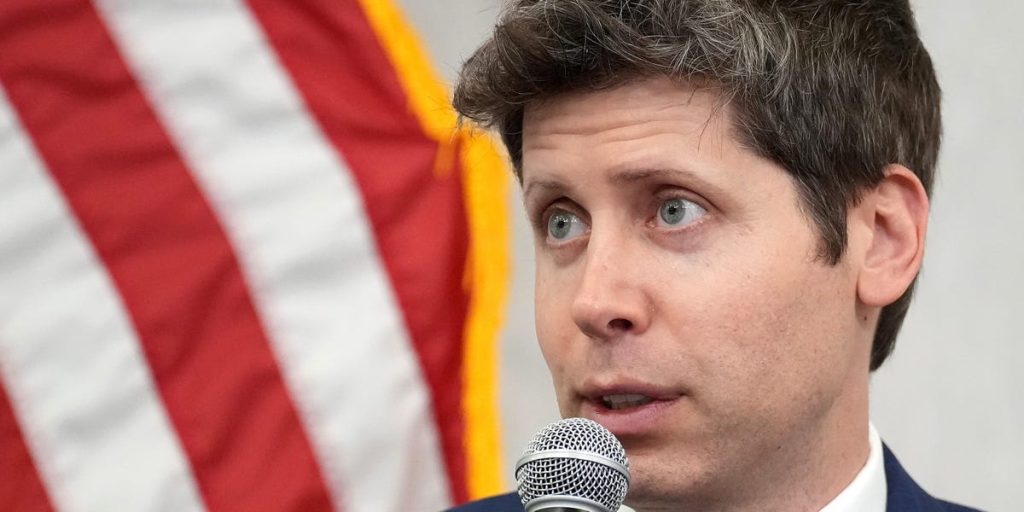All hail the new ChatGPT, which is much better than the old ChatGPT, which we’re getting rid of.
That was the messaging from OpenAI CEO Sam Altman and his team last week.
A day later, Altman changed his mind. He told the world the older version of ChatGPT was going to stick around, after all — in addition to the new version that was meant to replace it.
I’m not getting into the weeds here about the change and change back, which is confusing for people who use ChatGPT, and impenetrable to non-users. (If you want to, I suggest you head to Business Insider’s coverage, or this post from analyst Ben Thompson, for details.)
I’m most interested in Altman’s incredibly quick pivot.
Because I’m having a hard time thinking of a CEO hyping a new product launch, and almost immediately changing course afterward, supposedly because his customers didn’t like it.
Can you think of one? The most obvious one I can recall is New Coke, which you have to be pretty old to have tried. It only lasted for a few months in 1985, because lots of Old Coke drinkers hated it, and it’s now synonymous with Corporate Mega Flops. But it still lasted for a few months — not a single day.
Related stories
And this is different than product flops like the Samsung Galaxy Note 7, which was pulled off the market after a couple of months because some of them exploded.
Love Business Insider? Log in to Google and make us a preferred source.
And to be clear — Altman isn’t recalling his newest, very high-profile AI engine. It still exists; he’s just reversing his call to get rid of the older one.
(Business Insider owner Axel Springer has a commercial agreement with OpenAI. And our CEO thinks we should all use AI in our day-to-day work.)
It’s possible that there are other, yet-to-surface explanations for Altman’s change of heart. But so far, the only one he’s offered is that he heard from people on Reddit and presumably other places who were upset to lose the versions of the service they already had.
If you are an Altman fan, you can paint the episode as a story that shows you how nimble and responsive a Big Tech CEO can be.
If you are less generous, you might argue that this was something Altman and his company should have seen coming, and acted accordingly. Either by not budging, and explaining to users that they were wrong, and would learn to love the new tech. Or by not making the move in the first place.
Thompson, in his Stratechery newsletter, worries that Altman’s quick flip is a sign of a bigger problem — that he’s too willing to tell people what they want to hear:
The real question for OpenAI is if they are in fact … just a bit too obsequious and sycophantic. The paradox of successful consumer companies from Apple to Facebook is that they give customers what they want, but they don’t ask them; they make decisions and then seek out revealed preference through data, not stated preference on social media. Hopefully OpenAI did that in this case; my concern is that the more realistic explanation is that this is a company that, in the end, can’t say “no” to anyone.
Maybe! But I think this is probably a pretty small chapter in the OpenAI story — a visible, but ultimately not-that-consequential misstep. Maybe OpenAI really did misjudge its customers. But it was pretty easy to make those customers happy, simply by … not taking something away from them.
It also helps that this was a do-over Altman and crew could do with a couple key strokes. There were no devices (yet) to recall, no refunds to issue.
In that sense, this reminds me of something closer to a branding or marketing snafu, like a new Gap logo that lasted for 10 days in 2010, or that Kendall Jenner Pepsi ad from 2017 that disappeared after people called it stupid and tone-deaf. Embarrassing screw-ups, but not the first thing you think about when you think about those companies.
I myself had forgotten those stories until ChatGPT reminded me of them, when I asked for comparable flip-flops. (I don’t use ChatGPT to write my stories, but I definitely find myself using it as a superior version of Google more and more these days.)
And yes, if we see more waffling from Altman in the months and years to come, we’ll be able to point back to this botched rollout as the start of a pattern.
But for now, this one seems like an odd and interesting footnote, and not much else.


